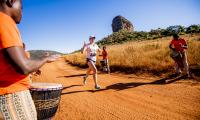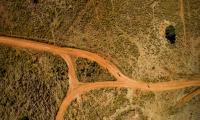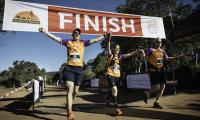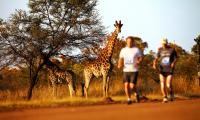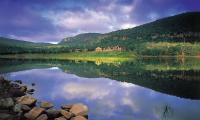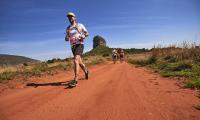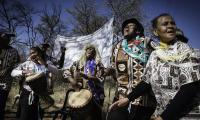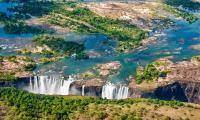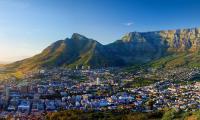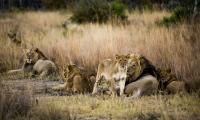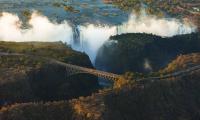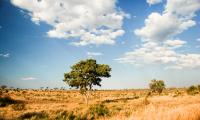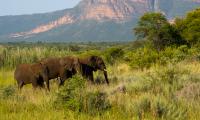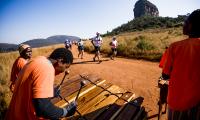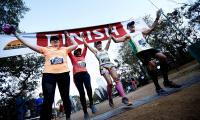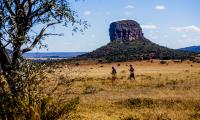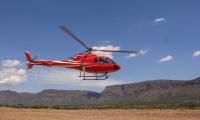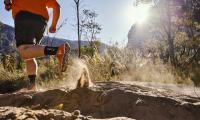Destination Guide
If you do not find the answer you're seeking, feel free to contact us with your question.
LanguageSee Below* |
Capital CityPretoria |
Inhabitants54,3 million |
ReligionChristian |
CurrencyRand |
Area1.220.00 sq. km. |
Language*
South Africa has 11 official languages. In order of first-language speakers, they are: Zulu, Xhosa, Afrikaans, English, Sotho, Tswana, Pedi, Tsonga, Swati, Venda, and Ndebele. The most common spoken languages are Zulu, Xhosa, and Afrikaans, depending on the area of the country. English, however, is the language of public life, and is commonly used in media, business, and government, and it is the most common second-language (followed by Afrikaans).
There are also several unofficial languages that may be used officially in limited geographical areas. Language as a concept is incredibly interesting in South Africa, as it is more fluid than in most other areas of the world. A vast majority of South Africans speak more than one language, and code-switching (meaning to use more than one language in the same sentence) in casual conversation is common.
Special Dietary Requirements
We understand that allergies and special diets are a common concern among our guests. We do our very best to accommodate any diet for medical, allergy or religious needs; however, we cannot guarantee that all dining establishments can fulfill special requests. As a result, we encourage our guests to take all necessary precautions during their travel.
Guests with special dietary requirements should inform their server upon arriving at the location. When present, your Albatros tour leader can also help inform local eateries of any special requests.
If you require a special diet during your travel, please inform us.
Please note: This information must be received no later than 45 days before your tour begins.
Electricity
The standard voltage in South Africa is 230V while the frequency is 50Hz. If you are bringing a laptop or similar portable device with you, be sure to check the labeling on the power pack. It should describe the amount of voltage your device can handle, and if a voltage converter is required.
South Africa uses four types of plugs: Type C, N, D, and M. Plug Type C is the standard, two-pronged European plug. Plugs of Type C should fit in a Type N socket, depending on the size of your plug (although an official Type N plug has 3 prongs). As of the past decade, Type N sockets have been declared the standard (slowly replacing Type D/M). Type D is commonly used in India, Sri Lanka, Nepal, and some African countries, and has no alternative plugs. Type M also has no alternative plugs. Thus, for international travelers to South Africa, a universal plug adapter is recommended.
Telephone & Internet
The international calling code for South Africa is +27. WiFi is generally available in restaurants and hotels in the cities. It may not always be free or reliable. In more rural areas, such as the game reserves, connections are spotty. For instance, most of the hotels in Entabeni have WiFi connection when guests are in the lobby, but rarely in the rooms themselves. Please note that the country of South Africa suffers from occasional power outages, so there is an ongoing risk that the power will be cut for a short period time (usually only for a few seconds to a few minutes).
Drinking Water
In South African cities, the tap water is generally viewed as safe to drink, although the taste may be less than desirable. In more rural areas and out at the safari camps, it is not recommended to drink straight from the tap. Out on the game reservation, hotels should have large water tanks where guests can refill reusable water bottles.
Tipping Guidelines
Tipping is customary in South Africa. In general, those working in the service industry receive low wages, and they may depend on tips for their livelihoods. Of course, as always, tipping is voluntary. As a general rule, one should except to give 10-15% of the bill as a tip in restaurants; 10% is acceptable for good service, but more is naturally appreciated if you feel the experience has been exceptional. For larger groups, a service charge may be automatically included, so remember to check if you’ve already been charged.
When staying at a resort on a game reserve (like Entabeni), it is customary to tip upon checking out of the hotel. A box will be placed in the reception where guests can tip at their own discretion, and these tips are divided among everyone at the resort (including cooks, rangers, cleaning staff, etc.).
Currency
The currency in South Africa is called the Rand (R). ATMs are found in all the major cities, and major credit cards are widely accepted. Cash can also be easily exchanged in banks or foreign exchange markets in the cities; the best currencies to do this are the US dollar, euro, or British pound. Out on the Entabeni Game Reserve, guests can pay their bill by card, but should withdraw any cash they might need before they arrive in the camps.
Visitors should note that ATM scams in South Africa are widespread. Be attentive to your surroundings when using ATMs, do not use machines that appear to have been tampered with, and if a transaction fails once, do not try again.
Medical Facilities
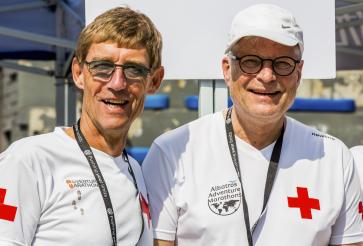
Please note that participants are responsible for their own travel insurance.
Medical assistance during the marathon event
A team of English-speaking Danish doctors and South African paramedics will be present during the race briefing and the race. The medical team is ready in case of injury or severe exhaustion.
Albatros Adventure Marathons™ will ensure that an English-speaking doctor/medical team is available for participants of our marathon events. If any treatment is unable to be carried out by the doctor and it is necessary to refer a participant to local medical facilities, the doctor/medical team and travel agency will not be held liable for any treatment carried out by staff from local medical facilities.
Passport & Visas
Please note that it is each traveler’s responsibility to check visa and passport requirements and ensure that they comply. Obtaining a passport and, if required, a visa, is solely the responsibility of each traveler. Remember to check that your passport remains valid for a period after your trip, and if you have enough blank pages should you require a visa. You can read up on countries exempt from a South African visa here:
http://www.dha.gov.za/index.php/immigration-services/exempt-countries
Please note that children (under 18) require extra documents in South Africa.
Vaccinations
Vaccinations should be obtained from the customer’s own physician. It is likely that guests will require one or more vaccines before traveling to South Africa, and thus we recommend contacting your physician as soon as possible once you have decided on traveling. Please note that some vaccines require schedules that can spread out over weeks or even months, so do not wait to inform yourself.
If the travel agency gives information about vaccination and/or prophylactic measures or other medical subjects, this should be considered as a service that is under no medical liability. The customer must be able to document the fulfilment of vaccination requirements by the presentation of the yellow International Certificate of Vaccination. Any vaccination requirements are solely the customer’s responsibility.

